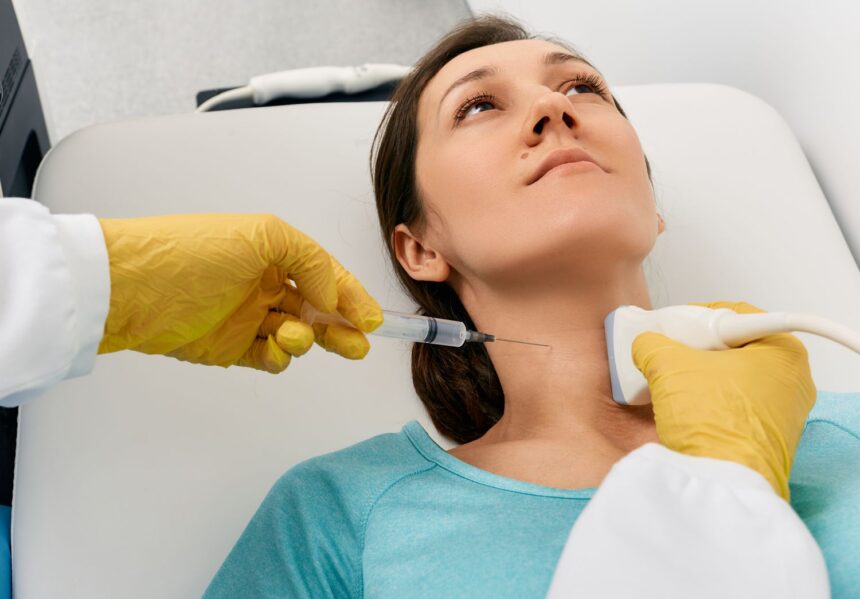Discovering a thyroid nodule often leads to questions about its cause and whether further testing is necessary. While most nodules are harmless, a biopsy is the most reliable way to determine if abnormal cells are present. Using ultrasound guidance, doctors can safely collect a small tissue sample for analysis, providing clear answers about your thyroid health. Here are a few key aspects of a thyroid nodule biopsy to help you make informed decisions:
What is a thyroid nodule biopsy?
A thyroid nodule biopsy is a minimally invasive procedure that removes a small tissue sample from a thyroid nodule for laboratory analysis. Using ultrasound guidance, a healthcare provider inserts a thin needle into the nodule to collect cells for examination and analysis. Pathologists analyze the tissue sample. Their goal is to determine whether the nodule is benign, malignant, or requires further evaluation.
The procedure provides diagnostic information that imaging studies alone cannot reveal. The analysis examines cellular characteristics. It helps distinguish between benign and potentially concerning nodules. If you have a thyroid nodule, discussing a biopsy with your healthcare provider can clarify the nature of the nodule and support informed decisions about your treatment options.
Why might a biopsy be recommended?
Healthcare providers recommend thyroid nodule biopsies based on findings from physical examinations and imaging studies. Nodules larger than one centimeter or with suspicious ultrasound features, such as irregular borders, increased blood flow, or calcifications, often require tissue sampling.
A biopsy may also be considered based on medical history or other risk factors, including:
- Personal or family history of thyroid cancer
- Prior radiation exposure to the neck
- Certain genetic syndromes
- Rapidly growing nodules
- Symptoms such as difficulty swallowing or changes in voice
- Age or gender factors that increase risk
Discussing these factors with your healthcare provider helps clarify why a biopsy may be recommended and guides the appropriate next steps for monitoring or treatment.
How is the procedure performed?
The biopsy is an outpatient procedure that usually takes 30 minutes or less. The healthcare provider cleanses the skin on your neck with an antiseptic solution and administers a local anesthetic to minimize discomfort. Providers use ultrasound-guided imaging to insert a thin needle into the nodule. Multiple samples may be collected with separate needles for accurate analysis.
After the procedure, you are briefly monitored before discharge, and most patients can resume normal activities immediately, including driving. Mild soreness at the biopsy site may occur but generally resolves within a few days. Results from the laboratory are usually available within two weeks.
Taking the next step in your thyroid health
Understanding the thyroid nodule biopsy process helps you make informed decisions about your care. A biopsy provides clear information about a thyroid nodule and helps guide next steps while offering reassurance about your thyroid health. If you have a thyroid nodule or concerns about your thyroid, consulting with a qualified endocrinologist help provide expert evaluation and personalized guidance. Early discussion and careful consideration support confident decisions about ongoing care. Contact your healthcare provider today to determine if a thyroid nodule biopsy is appropriate for you.





